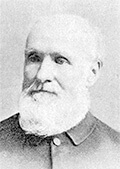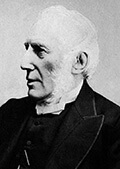the Second Week of Lent
free while helping to build churches and support pastors in Uganda.
Click here to learn more!
Bible Commentaries
Comentario CrÃtico y Explicativo de toda la Biblia Comentario CrÃtico
Antiguo Testamento
The creation, humanity's fall, the flood, and God's covenant with Abraham and his descendants. Ãxodo
Israel's escape from Egypt, receiving the Law, and covenant formation at Mount Sinai. LevÃtico
Laws on sacrifices, purity, and holiness, guiding Israel's worship and community life. Números
Israel's wilderness journey, census data, and preparations for entering the Promised Land. Deuteronomio
Moses' final speeches reiterating the Law and renewing Israel's covenant before entering Canaan. Josué
Israel's conquest, division of Canaan, and Joshua's leadership in settling the Promised Land. Jueces
Israel's cycle of sin, oppression, and deliverance by judges, highlighting moral decline. Rut
A story of loyalty and redemption, leading to Ruth becoming an ancestor of King David. 1 Samuel
Samuel's leadership, Saul's reign, and David's rise as Israel's future king. 2 Samuel
Focuses on King David's reign, his successes, personal failings, and the establishment of a united Israel. 1 Reyes
Solomon's reign, the temple's construction, and the kingdom's division after his death. 2 Reyes
Chronicles the history of Israel and Judah, detailing the reigns of their kings and the fall of Jerusalem. 1 Crónicas
A retelling of Israel's history, focusing on David's reign and temple preparations. 2 Crónicas
The history of Judah's kings, emphasizing temple worship, leading to Babylonian exile. Esdras
The return from exile, rebuilding the temple, and reestablishing the Law in Jerusalem. NehemÃas
Nehemiah's efforts to rebuild Jerusalem's walls and restore the community's faithfulness. Ester
A Jewish queen's courage saves her people from a plot of genocide in Persia. Job
A righteous man's suffering, his dialogues on justice, and God's ultimate sovereignty. Salmos
A collection of songs and prayers expressing worship, lament, thanksgiving, and praise to God. Proverbios
Wisdom sayings offering guidance on moral living, relationships, and the fear of God. Eclesiastés
Reflects on the meaning of life, exploring the futility of human endeavors and the pursuit of wisdom. Cantares
A poetic celebration of love, expressing deep romantic and spiritual devotion between lovers. IsaÃas
Prophecies of judgment and redemption, foretelling the Messiah's coming and Israel's restoration. JeremÃas
Warnings of Jerusalem's destruction, calls for repentance, and promises of a new covenant. Lamentaciones
Poems mourning Jerusalem's destruction and expressing deep sorrow, yet hope in God's mercy. Ezequiel
Visions and prophecies of Jerusalem's fall, Israel's restoration, and a future temple. Daniel
Stories of faithfulness in exile and visions of future kingdoms and God's ultimate victory. Oseas
A prophet's marriage symbolizes God's steadfast love for unfaithful Israel, calling for repentance. Joel
Prophecies of a locust plague, judgment, and the outpouring of God's Spirit. Amós
A call for social justice, condemning Israel's complacency and predicting divine judgment. AbdÃas
Prophecy against Edom for its betrayal of Israel, foretelling its destruction. Jonás
A reluctant prophet's mission to Nineveh, highlighting God's mercy towards repentance. Miqueas
Warnings of judgment, calls for justice, and prophecies of a future ruler from Bethlehem. Nahúm
The impending fall of Nineveh as God's judgment against Assyrian cruelty. Habacuc
A prophet questions God's justice, leading to a vision of divine sovereignty and faith. SofonÃas
Prophecies of judgment on Judah and surrounding nations, with promises of restoration. Ageo
Encouragement to rebuild the temple after the Babylonian exile, emphasizing God's presence. ZacarÃas
Visions and prophecies encouraging the returned exiles, foretelling the Messiah's coming. MalaquÃas
A call to covenant faithfulness, addressing Israel's spiritual apathy, and predicting Elijah's return.
Nuevo Testamento
Jesus' life, teachings, and fulfillment of Old Testament prophecies as the Messiah. San Marcos
A fast-paced account of Jesus' ministry, focusing on his actions and sacrificial death. San Lucas
Jesus' life, emphasizing compassion for the marginalized and the universal scope of salvation. San Juan
Theological reflections on Jesus as the Word of God, focusing on his divine nature and mission. Hechos
The early church's growth, the apostles' ministry, and the spread of the Gospel. Romanos
A theological treatise on salvation, grace, faith, and righteousness through Jesus Christ for all. 1 Corintios
Paul addresses divisions, immorality, and spiritual gifts in the Corinthian church. 2 Corintios
Paul's defense of his apostleship, his sufferings, and the power of God's grace. Gálatas
Paul's defense of the Gospel of grace against legalism, emphasizing faith in Christ alone. Efesios
Paul's teachings on the church's unity, spiritual blessings in Christ, and Christian conduct. Filipenses
A letter of joy and encouragement, urging humility and faithfulness amid persecution. Colosenses
Paul's emphasis on Christ's supremacy and warnings against false teachings. 1 Tesalonicenses
Encouragement to a young church, with teachings on holiness and Christ's return. 2 Tesalonicenses
Clarifications about Christ's return and exhortations to stand firm in faith. 1 Timoteo
Guidance for church leadership, sound teaching, moral conduct, and defending the truth of the gospel. 2 Timoteo
Paul's final exhortations to Timothy, emphasizing perseverance and faithfulness. Tito
Instructions for establishing order in the church, promoting sound doctrine, and living with integrity. Filemón
A personal appeal for the forgiveness and restoration of a runaway slave, Onesimus. Hebreos
An insightful look at Christ's supremacy, priesthood, and the fulfillment of prophecies. Santiago
Practical wisdom on living out one's faith through good works and righteous behavior. 1 Pedro
Encouragement for suffering Christians to remain faithful and hopeful in their trials. 2 Pedro
A reminder to grow in faith, resist false teachings, and remain steadfast awaiting His return. 1 Juan
Teachings on love, obedience, and assurance of salvation through fellowship with God. 2 Juan
A letter encouraging love, obedience to God's commands, caution against teachings that deny Christ's truth. 3 Juan
A personal letter commending hospitality and warning against arrogance in church leadership. Judas
A strong warning against false teachers and a passionate call to defend the faith and uphold the truth. Apocalipsis
Apocalyptic visions of God's ultimate victory, Christ's return, and the new heaven and earth.
Author's Biography
Robert Jamieson, Andrew Fausset y David Brown se destacan como un trÃo distinguido en el campo de la erudición bÃblica, conocidos principalmente por su monumental obra, el "Comentario Jamieson-Fausset-Brown". Este comentario exhaustivo sobre la Biblia, publicado por primera vez en la segunda mitad del siglo XIX, sigue siendo un recurso venerado tanto para teólogos, pastores como para lectores laicos, ofreciendo profundos conocimientos sobre las Escrituras.
Robert Jamieson (1802-1880) fue un clérigo y teólogo escocés, que sirvió con distinción en varias parroquias dentro de la Iglesia de Escocia. Su profundo compromiso con el cuidado pastoral y la educación teológica marcó su ministerio, sentando una sólida base para su posterior trabajo erudito. Las búsquedas académicas de Jamieson fueron impulsadas por una pasión por hacer que la Biblia fuera accesible y comprensible tanto para el clero como para los laicos, una misión que encontró su culminación en el comentario colaborativo.
Andrew Robert Fausset (1821-1910), un clérigo y erudito anglicano irlandés, aportó al proyecto un impecable dominio de los idiomas bÃblicos y un enfoque meticuloso para el análisis de las Escrituras. Las contribuciones de Fausset al comentario son reconocidas por su exhaustivo examen del contexto histórico y lingüÃstico de las Escrituras, enriqueciendo la comprensión del texto bÃblico del lector.
David Brown (1803-1897), un teólogo y ministro escocés, fue famoso por su predicación y sus contribuciones académicas a la Iglesia Libre de Escocia. El trabajo de Brown en el comentario se caracteriza por su aplicación práctica y su calidez evangélica, con el objetivo de tender un puente entre la perspicacia académica y la vida cristiana cotidiana.
Juntos, Jamieson, Fausset y Brown crearon un comentario que combina el rigor académico con la sensibilidad pastoral, ofreciendo a los lectores una rica interpretación bÃblica. Su trabajo se distingue por su enfoque metódico a las Escrituras, examinando los textos originales en hebreo y griego, y proporcionando un comentario exhaustivo sobre prácticamente cada versÃculo de la Biblia. El "Comentario Jamieson-Fausset-Brown" perdura como un testimonio de su experiencia colectiva, un tesoro de conocimiento bÃblico que continúa ofreciendo orientación, inspiración y comprensión a aquellos que recurren a sus páginas.


